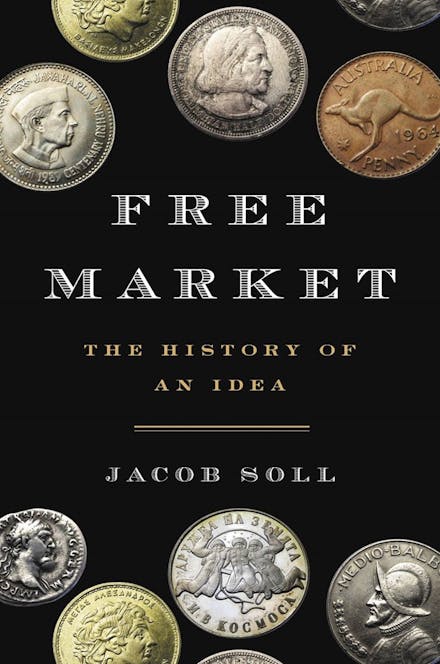Imprint
- Basic Books
Economic history
From a MacArthur Genius, a new intellectual history of Free Market ideology, revealing that it has always been more flexible than uncompromising theorists like Milton Friedman would have us believe
After two government bailouts of the American economy in less than twenty years, free market thought is due for serious reappraisal. Free Market: The History of an Idea shows how the idea became so powerful, why it succeeded, and why it has failed so spectacularly. In 1990, the G7 Countries enjoyed 70 percent of world GDP. In the face of the collapse of the Soviet Union, it was supposed to be a story of the success of free markets. However, in the past thirty years, that number has dropped by half, and Asia has emerged as a major motor of world economic growth. Today, state-run China is the second biggest economy on earth, and tiny Singapore, with its state-owned companies, has become a new model of wealth creation. In other words, Milton Friedman's free market dogma, that only private companies can create wealth and that states hamper it, has not proved very clearly to be untrue. This book shows how we got to the current crisis of free market thought, and suggests how we can find our way out. Contrary to popular free market narratives, early market theorists believed that states had an important role in building and maintaining free markets. But in the eighteenth century, some free-market thinkers began insisting only pure free markets, without state intervention, could work. A tradition of free-market ideological brittleness emerged, and it has led orthodox free market economics to some spectacular failures. It is a paradox that an economic theory rooted in the idea of competition, adaptation and evolution, has refused to follow its own precepts. This book shows that we need to go back to the origins of free market thought in order to understand its dynamism, as well as its inherent weaknesses, and to develop new economic concepts to face the staggering challenges of the twenty-first century.






















.png?auto=compress&w=150&h=60&fit=crop&fm=jpg)



.png?auto=compress&w=150&h=60&fit=crop&fm=jpg)

